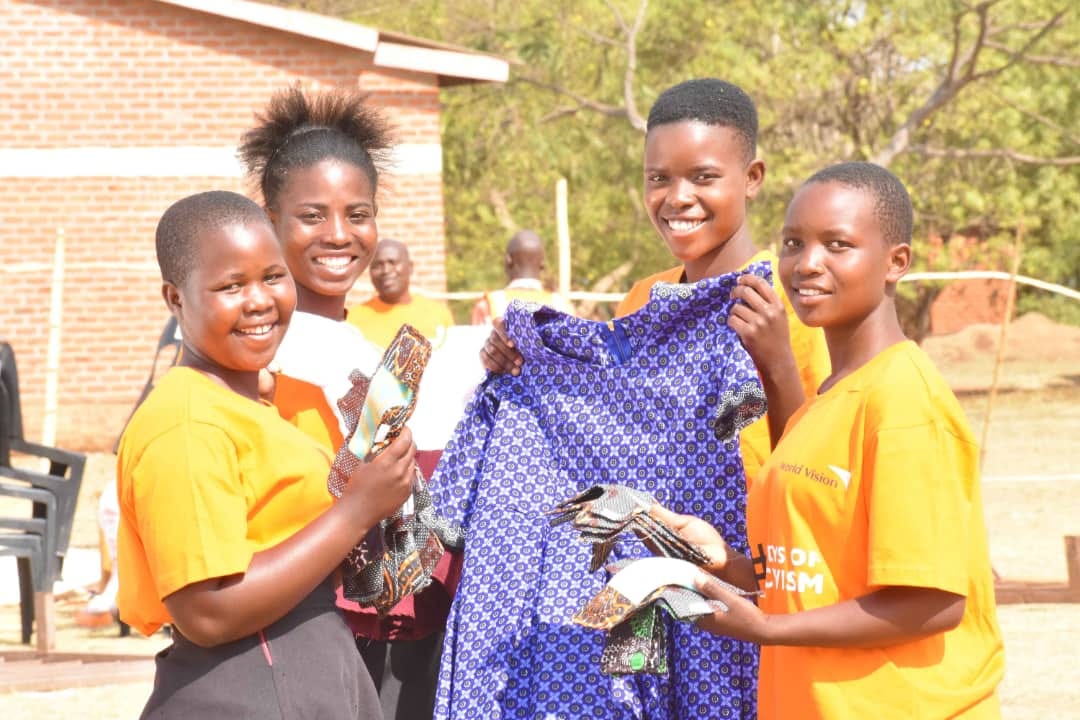World Vision’s TIAA programme helps keep girls in school, prevents early marriages in Malawi
Jessie Patson was just 14 years old when she made the life-altering decision to drop out of school and marry her 20-year-old boyfriend-Brenda Sanudi.
Malawi- Jessie Patson was just 14 years old when she made the life-altering decision to drop out of school and marry her 20-year-old boyfriend, writes Brenda Sanudi.
Growing up in Waliranji, a village in the area of Senior Chief Mavwere in Mchinji district, Jessie struggled to stay in school due to a lack of support from her family.
"When I got to standard eight, life got tougher as my mother could not give me the most needed support as a girl child. I struggled to wash clothes and have pens and notebooks. As such, I decided to quit school altogether. Later, my boyfriend told me he would take care of me only if he married me," Jessie explained.
Unfortunately, Jessie's story is not unique. Over 42% of girls in Malawi under the age of 18 get married, according to a UNICEF report on Ending Child Marriages, released in 2018.
Poverty is often cited as the main cause of this phenomenon, with many families struggling to provide for their children.
To address this issue, organizations like World Vision have launched campaigns to keep girls in school and prevent early marriages.
In Mchinji, World Vision's Tiwerenge 365 education program works with community groups to bring girls back from marriages by offering mentorship sessions and providing reusable menstrual pads.
However, even with these efforts, retaining girls in school remains a challenge. Many girls return to marriage due to a lack of academic support.
That's where the Tithandize Atsikana Aphunzire (TIAA) project comes in.
With TIAA, World Vision pays school fees and provides basic needs to vulnerable girls in the Bua-Mtete area.
According to Stella Magombo, Child Protection Officer for Bua Mtete, TIAA has been a game-changer in keeping girls in school.
"Before this project, our efforts to keep girl children out of marriage were fruitless, as most of the girls could get back into their marriages for lack of proper rehabilitative support. But with TIAA, World Vision is supporting the girls with school fees and school materials, which have made most girls return to school," she said.
Thanks to TIAA, Jessie, now 17 years old with a two-year-old son, was able to return to school and just sat for her Junior Certificate of Education examinations (JCE) at Waliranji Community Day Secondary School.
She hopes to become a nurse.
Olivia Rabson, 19, is another success story. After being married and having a child, she is now back in school and is part of a TIAA club at her school, where she helps mentor other girls on the dangers of early marriage.
Olivia has become a champion of school retention in her community as she conducts mentorship sessions with her fellow teen mothers.
"Right now I am happy I am back in school because World Vision is paying my school fees, including providing other school materials. However, I feel as a teen mother, I have the responsibility to enlighten other girls on the dangers of early marriage. So right now through TIAA club at our school, we conduct mentorship sessions in surrounding schools to create awareness on the dangers of early marriages," says Olivia.
Rose Mwale, a teacher and matron for TIAA at Kamwanya Community Secondary School, is also on full alert to ensure no girl child drops out of school for lack of support.
"Apart from the school fees for the needy girls, World Vision also trained us in tailoring, so now we make reusable menstrual pads for needy girls in the schools to boost menstrual hygiene. So far, the initiative has produced massive results as school retention has increased now unlike in the past. Just this term, we have retrieved six girls from marriages who are back in school with full TIAA support," says Mwale.
World Vision Malawi's National Director, Francis Dube, says the child marriage problem hinges on mindset change.
He has since assured his organization's full commitment to social behaviour change interventions as a more sustainable way to end the vice, among other things.
Olivia's story is one of resilience and hope. Despite the challenges she faced, she refused to give up on her dreams and has become a role model for other young mothers in her community.
With the support of organizations like World Vision, more girls like Olivia can have the chance to achieve their full potential.



